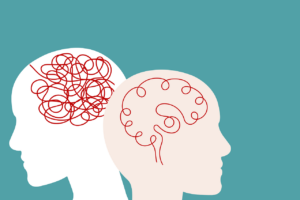
Exercise can improve brain function, researchers say
Exercise helps brain function; case closed!
In a previous article we drew attention to the importance of exercise for maintaining brain size, which helps maintain brain function. It turns out that exercise also helps by influencing the makeup of the brain. Recently, researchers tested the effect of exercise on brain composition in healthy patients and patients with mild cognitive impairment (which is what happens before people develop serious thinking/memory problems or dementias), and they found an interesting new piece to the puzzle of how exercise affects your brain.
Exercising and Brain Composition
In the study, researchers at UT Southwestern Medical Center brought 81 participants into the lab for testing. Participants underwent a VO2max fitness test (a test of your maximum aerobic exercise fitness), tests for memory and executive function (which is how your brain inhibits impulses in favor of careful decisions, decides what to focus on, and comes up with ideas), and a brain scan of white matter. Why? Well, white brain matter is made up of neurons that allow fast and effective brain communication, and more of it means a higher functioning brain. The final tests revealed that subjects with higher VO2max scores had 54% more white brain matter. Those same subjects also performed better on executive function tests.
We should point out that the researchers didn’t have participants perform exercise and then measure white matter, but their data suggests that more exercise can lead to a healthy increase of white matter in the brain, and probably better high-order brain functioning.
How to Protect Your Brain
This new research on VO2max is interesting, because so far, research has shown that exercise is one of the few ways to slow cognitive decline. That’s right: vitamins don’t do much, and no one has done the proper trials to prove for sure whether or not certain diets do.
So, how do you improve your VO2max? This can be tricky, because whether or not you are athletic, your VO2max will decline with age. One study found that masters and professional athletes, who continued to regularly train over the course of the study, had a 5.5% decline in VO2max per decade, while non-exercising individuals had a 12% decline in VO2max over time. So, VO2max still drops significantly, even if you’re an athlete. This could be because of two factors in the VO2max equation that change as we age: 1) We tend to lose muscle mass with aging, and 2) Our maximal heart rate declines as we age.
The good news is that same study shows that exercise can slow the rate of decline in VO2max by 6.5% per decade. This is because even though you can’t really do much about your max heart rate declining, you can protect your muscle mass by exercising. You don’t have to think too hard about your VO2max per se (max tests must be done in a lab and sometimes under the supervision of a doctor). Instead, you can just follow guidelines for the right amount of exercise as you age.
The American Heart Association recommends moderate endurance aerobic activity such as brisk walking, running, swimming, biking, etc., for a minimum of 30 minutes five days per week, or high intensity endurance aerobic activity such as running, swimming, or biking for 20 minutes three days each week. Weight training several days per week is also great for bone health and strength (and to protect that muscle mass), and the American College of Sports Medicine has guidelines on how to do this.
You can try other non-exercise approaches to help your brain age well, such as healthy diet, and perhaps coffee or brain training (as long as it’s the right kind), but exercise is really the safest bet for now.
ABOUT THE AUTHOR
Tara Grieshaber, B.A. ’17, Integrative Physiology, University of Colorado-Boulder





